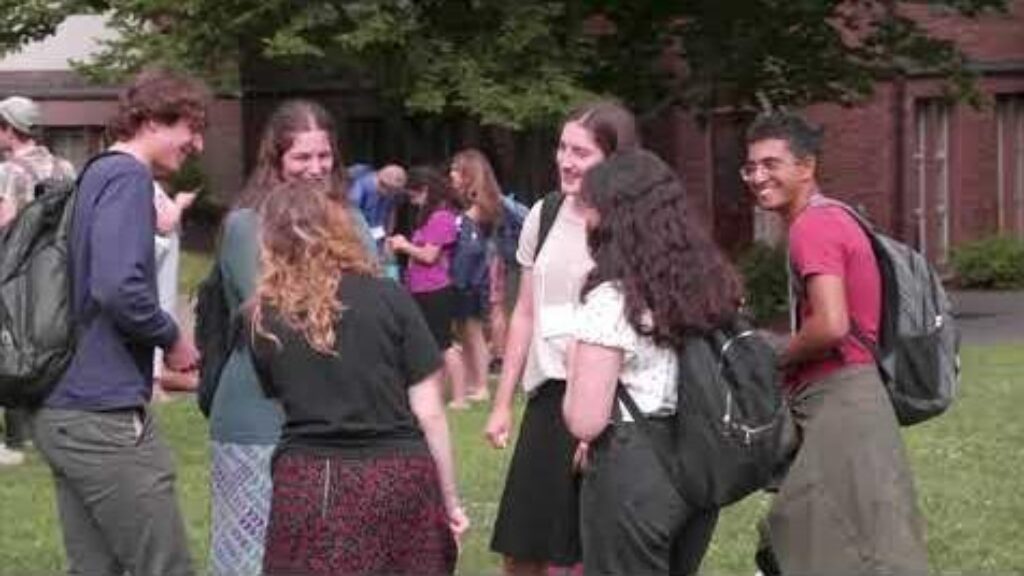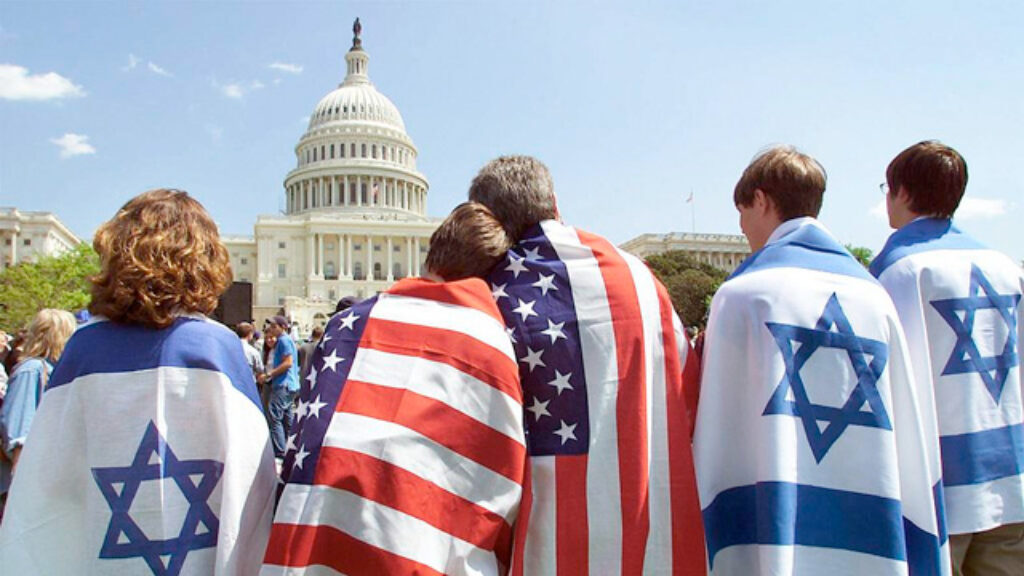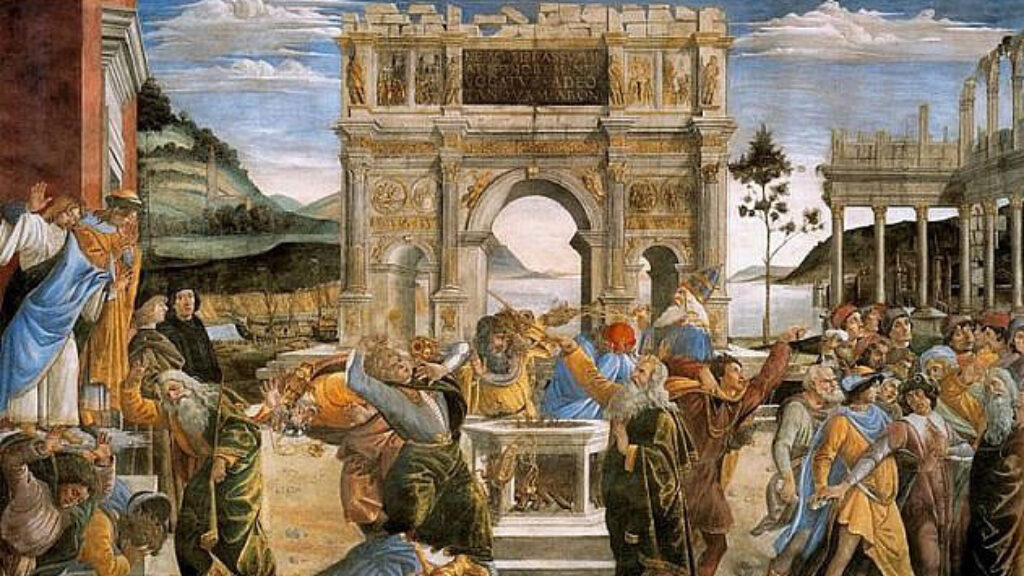Zakhor, or Where Is Our History?
BY MAYA TRATT
For all the talk about how Jews are the “People of the Book,” there is a chapter that seems conspicuously missing—where is Jewish history? A ubiquitous facet of modern intellectual and educational life, history as a science seems absent at best and impugned at worst by the Jewish tradition. Maimonides, taking his cue from Aristotle who understood history to be epistemologically inferior, definitively declares it a “waste of time.” Far from being an isolated case, Maimonides’ opinion is indicative of the denigration with which history was viewed for generations. This essay attempts to explore what a uniquely Jewish vision of history might look like, as well as prods the question of what has changed—and perhaps most interesting of all, asks whether we should go back.
The Tanakh and the Talmud, the two foundational Jewish texts of the past two millennia, have their own form of history. Rather than the laughable proposition of a scientific study divorced from biases (my history teacher once quipped that Josephus was the first bad historian), these two texts craft and build upon an ethic of etiology that functions as a uniquely utilitarian and Jewish version of “history”—or at least that is the tantalizing thesis of Yosef Hayim Yerushalmi in the book “Zakhor: Jewish History and Jewish Memory.” Yerushalmi surmises that viewing Jewish history as a movement that progresses is an inherently flawed way of looking at it. Meanwhile, Tanakh routinely commands us to “zakhor!,” to remember, as an act that might create a collective memory, but does not give way to a concrete history.
Why must Jews remember? Well, in some ways, it is a more effective way of making history into something tangibly worthwhile. We remember that we were slaves in Egypt so as to not inflict oppression upon other members of society. We remember that God took us out of Egypt, so we owe Him our observance of the commandments. We remember that Abraham was promised the land of Israel, and so too were we. We remember how certain nations afflicted us, and how we bear an eternal grudge against them. The Jewish story is a circuitous one, which is partially why past generations of observant Jews didn’t see the need to chronicle their affliction—it had already been chronicled for them.
Even when Jewish history did emerge, it was usually masked with something that revealed its true lack of history in the scientific sense. For example, in post-expulsion Spain, what might have seemed like an increase in Jews chronicling their stories was really the Sabbatean movement operating as if it had finally broken out of the cycles of the Jewish tradition. Similarly, in response to devastating pogroms and violence, Jewish communities in Medieval Europe would invoke past events in Judaism to explain the situation to themselves. They ceased to be in the shaking and depleted shtetls in Poland and instead found themselves sitting on the shoulders of giants that had lived through all of this before. The Jews would be persecuted, then they would be saved, and it was as predictable as it was trite to write about the specifics of such a thing.
Yet while religious Jews pored over the same books their ancestors had murmured into being, revolution was brewing. In its nascent stage, the Zionist movement’s greatest enemy was the obstinacy of a Jewish community that felt a certain complacency, and for some, a religious obligation to remain removed from history. Jewish involvement in history seemed wistful at best and a sin at worst. Jews had remembered for so long that it seemed impossible to think of another end to a story that had already been written and acted out again and again. I do not think Zionism, and with it, Israel, could have emerged without breaking out of the encasement of the “Jewish story.” The early Zionists were convinced they could change the path of history, and so they did. The religious community saw the seeds of redemption whereas the secular saw national success, and together, we returned to our homeland.
Yet we forget what Jewish history can do for us at our peril. It is binding and draws one in emotionally in a way that no science ever could. It forms a national community that is foreboding in its bonds. And for the past few years, maybe decades, we’ve been drawn into the collective lie of scientific history. We began to look at Jewish history in textbooks and at our fellow Jews with disdain. The tragedies of October 7 reminded us that we forget our collective memory at a high price; that our army is the element of our nation that is necessarily steeped in the chronologies of kings and wars that Maimonides dubbed frivolous, and that our social fabric, irrevocably scarred with cracks that are being slowly mended collectively, is the uniquely Jewish element of history. We infuse it with memory because nothing is simply a mechanical war; rather, it is our dear brothers and sisters who are waging battle on every front that’s been waged before, and will be waged again, and again, and again.
Suggested Reading

A New Viewpoint on Diversity
Often, it seems that the people who talk about diversity never visit diverse communities. People seem to think that diversity is based on how one looks. True diversity is not about how someone looks, but how they act.

My Real Internal Conflict is Not One of Clashing Interests
When do my Jewish interests and American interests conflict? After much careful internal deliberation, I have concluded that they do not.

Regaining our Power Through Knowledge: The Solution to Rising Anti-Semitism on Campus
An emotional connection to our Judaism cannot be our only solace. Knowledge is the solution to the problem Jewish students face today.

Korahite Judicial Philosophy
BY JACOB SHAYEFAR Korah makes an interesting point. As the Midrash relates, Korah began his assault on the authority of Moses with a halakhic argument. He asserts that in any…